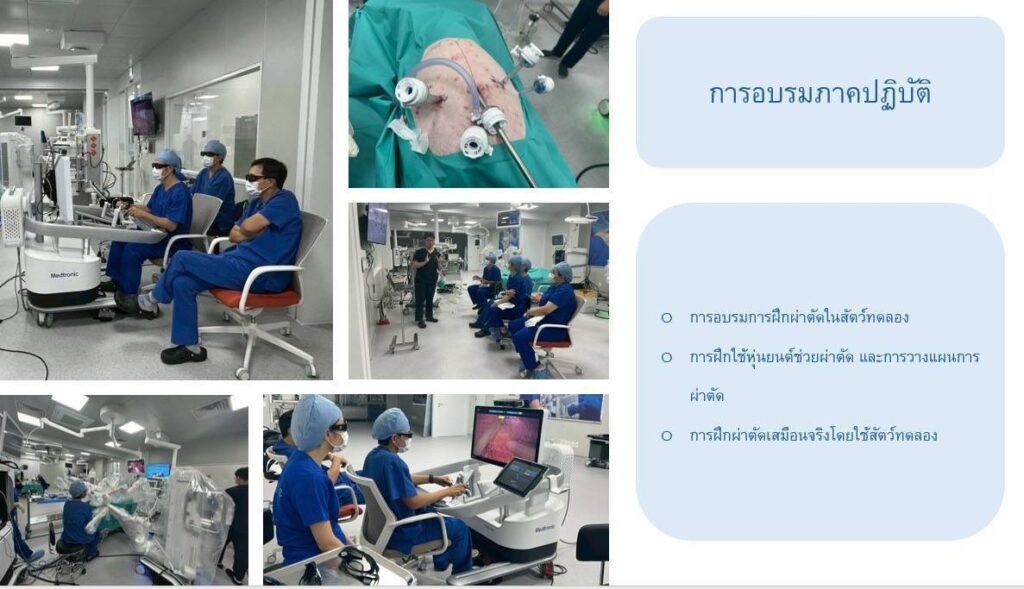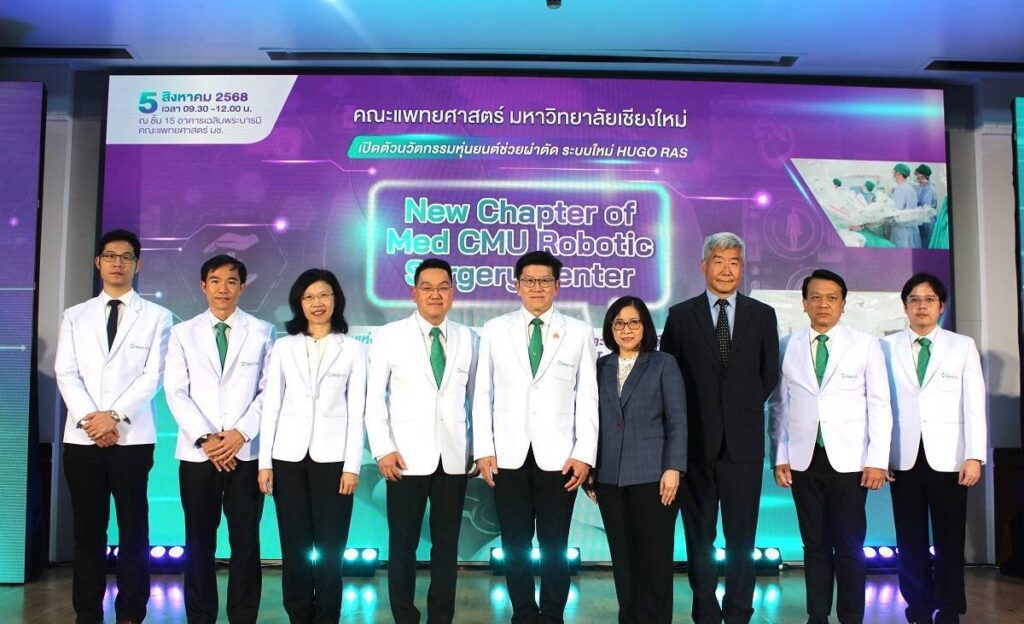Chiang Mai – The Faculty of Medicine, CMU, has launched the innovative robotic surgery system, New Chapter of Med CMU Robotic Surgery Center, the first in Thailand and Southeast Asia, elevating the healthcare system with advanced technology. This center addresses the public’s health needs and provides the most efficient, diverse, and modern medical services.
Associate Professor Narain Chotirosniramit, M.D.Assoc., Dean of the Faculty of Medicine, CMU, revealed, “The Faculty of Medicine, CMU, is committed to developing the healthcare system in accordance with the Faculty of Medicine’s strategic plan for 2025-2028, which aims to become a medical school of choice. This strategy emphasizes innovation and emphasizes sustainability in health care. Our mission is to expand and improve the quality of medical services to create service excellence, build confidence in the service system, and expand the service area, ensuring access to effective treatment for all groups of people.” This will create equal access to medical services and serve as an international medical center, serving as a model for the medical school of the future. It will also elevate patient care services with robotic surgical technology, utilizing the most advanced technology available today. This commitment to making technology accessible to all, or “Technology for All,” integrating research knowledge and technology, opens a new chapter in the Thai healthcare system with a new surgical robotic system. This revolutionary new surgical system is the first in Thailand and Southeast Asia to utilize a highly accurate, flexible, and friendly robotic surgical system that is both surgeon and patient-friendly. This system will enable surgeons to efficiently access complex surgical procedures in hard-to-reach areas, reducing complications, speeding recovery, and alleviating patient pain.
“This new surgical robotic system is designed as a modular platform capable of performing procedures on multiple parts of the body. It utilizes the Modular Platform concept, which enhances surgeon agility. Its robotic arm mimics the rotation of the human wrist, but with greater freedom. It also features an ergonomically designed open console, allowing surgeons to control surgical procedures more precisely and comfortably, even during long periods. Furthermore, it promotes collaborative learning through a real-time 3D display.” While the surgeon is performing the surgery, observers can view and communicate with each other at any time.”
Distinguished Professor Bannakij Lojanapiwat, M.D., a senior advisor at the Faculty of Medicine, CMU, added that robotic surgery offers numerous benefits. The robotic arm’s movement is superior to that of a human hand, and its high-resolution 3D magnification and imaging system allows surgeons to see organs and structures more clearly, resulting in more efficient and accurate surgery. This reduces complications, particularly blood loss during surgery. Furthermore, the smaller incisions result in significantly less postoperative pain than open surgery, and the risk of postoperative infection is significantly reduced. This allows patients to return home faster and recover more quickly. Surgeons with expertise in robotic surgery and the robotic surgery team therefore require extensive training, including training in simulations and practical surgery in animal models or cadaveric labs, before performing surgery on real patients. The Faculty of Medicine, CMU, has a robotic surgery program for all departments, including the urinary system, hepatobiliary system, intestinal system, upper gastrointestinal system, gynecological system, and thoracic system.
Global robotic surgery statistics have been steadily increasing each year, with Thailand showing a similar trend. Last year, the number of surgeries increased by 47 percent compared to the previous year. The most commonly used conditions for robotic surgery are urinary tract diseases, particularly prostate cancer. Since the installation of the Modulator robotic surgery system and the first patient performed in June, a total of 16 surgeries have been performed: 11 for prostate cancer, one for renal tract cancer, and four for pancreatic cancer. All patients had good outcomes with no complications. Robotic surgery will continue to be offered to other diseases in the future.




